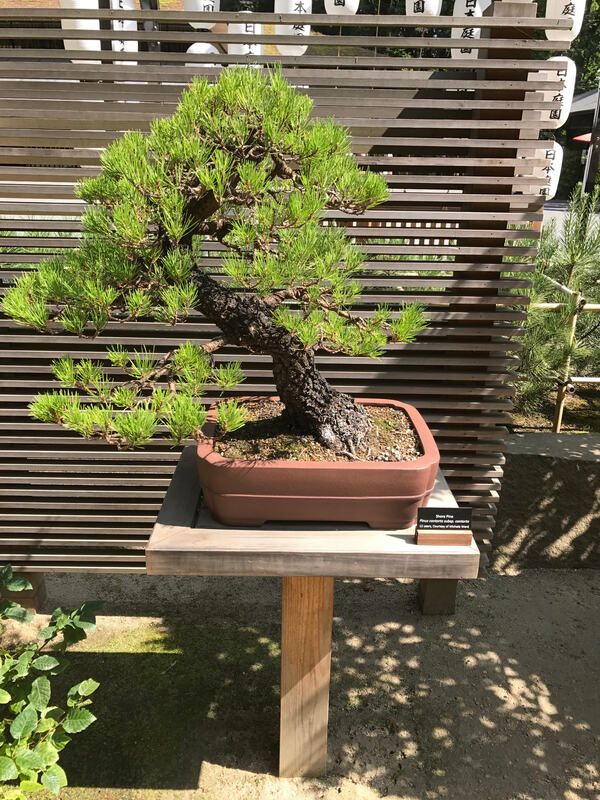Portland Japanese GardensHonoring Insight
I encourage my students to honor their insights, and celebrate them with a poem. Sometimes we are graced with a beautiful or frightening perception that brings light into our lives. It is important to articulate this seeing as closely as possible to the event. I like to do it by writing a poem. By writing the poem, with gratitude, you shift out of your ordinary mind into a mind of attentiveness. Seek the best possible words to indicate your insight, and leave out absolutely every distracting image or unnecessary word. Adhering only to what you have seen, without making an attempt to fit your insight into your life, will place you inside your seeing. After all, insight is often disruptive and we don't want to shrink it to the size of who we were before the insight. |
Tanka Practiceabout tanka practice
We began by writing our intentions each morning and emailing them to like minded friends; our individual plans to live wakefully each day. At the end of the day we sent a commentary about how our day’s intentions unfolded. These were written in prose and sometimes became lengthy and emotionally heavy. In an effort to correct this, we moved to writing poetry. Emphasizing succinctness, honesty and beauty we found the poetry mutually inspiring. First working in haiku, or other short forms, our practice since has evolved to the writing of tanka. Tanka is a five lined poem developed in ancient Japan. We like Jeanne Emrich’s instructions at http://www.tankaonline.com/ Beauty is the natural outcome of succinctness and truth. To begin your own tanka practice, start your morning by writing one. (Julia Cameron's lovely morning pages helped inspire our practice.) The tanka should be simple, spontaneous and reflect a perception that has struck you. Later you can revise your tanka to develop its artistic attributes. Reach deeply within to find the honest voice of truth. Connecting with your intention each morning can lead to a more powerful day. Sharing those intentions will help you focus your awareness, and support you with the accountability that is established by a public statement. If you don't have a group to share with, read your tanka out loud, facing the mirror, addressing your friend; your highest self. Making the effort to be essential, which is required when you have only 5 lines, creates a pressure on you to clarify your seeing. This pressure also helps you write good poetry. These simultaneous actions: self-seeing and ascending to beauty, are at the heart of tanka practice. Tanka Prose
Sometimes it is best to precede your tanka with a couple of paragraphs of prose. The prose sets the stage for the tanka, which pops, like a window on a vista, setting the perception within a context. You can see some beautiful examples here: https://contemporaryhaibunonline.com/ |
|
tanka prose
The Girl Who Sings In my thirties I worked at a university counseling center. Most of my patients were undergraduate students. Tales of leaving home, making friends, finding love and choosing a path were spun out hour by hour in my pretty, windowed office. One girl’s struggle in particular was memorable to me. She had the soft, freckled face of a child just beginning to emerge into womanhood. Her slight figure had the skittish aspect of a deer pursued by some danger. Her mother had died several years earlier. She had a younger brother of about twelve. The father didn’t sound like much of a prize. According to her he drank and had periodic fits of bad temper. Often she slept on the couch to place herself between her brother’s bedroom and the door through which her father would enter. Remarkably, her mother’s grave lay just behind their house and was visible from the girl’s window. within view of their mother’s stone two children grow The problem the young lady came in to discuss was the tension between her desire to transfer to a music college and her worry for her brother who she would have to leave in order to do so. She told me about the musicians she admired, shifting in her seat to demonstrate the lively movements of a singer on her piano bench. Dancing in her chair, her face was animated, her eyes bright. In just a beat her face darkened but without resentment. She said only, “but really, I can’t go.” she wants to sing her own words on stage how can I tell her that she already does? Leslie Ihde published in LYNX, June 2012 |
3 tanka
recognizing its image in mountains the soul soars octaves above ~ call me flash my brother said zooming past me at 5 on the phone he tells me that his wife left him ~ queen anne's lace both queen and weed the flower I notice in youth a lace of contradiction |
